Landscape Gardening in Gardener Gardening: Transform Your Outdoor Space
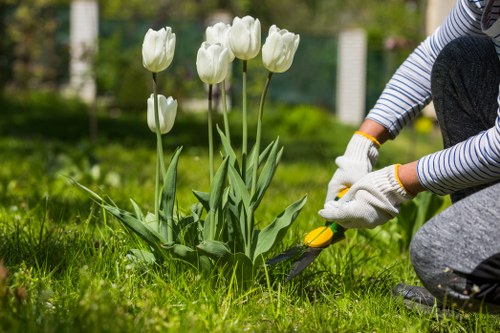
Introduction to Landscape Gardening
Landscape gardening is an art and science that combines the beauty of nature with the functionality of outdoor spaces. For gardeners, understanding the principles of landscape gardening is essential to create stunning and sustainable environments. Whether you're a novice or an experienced gardener, this comprehensive guide will help you enhance your gardening skills and transform your outdoor space.
In the world of gardener gardening, landscape gardening plays a pivotal role. It involves designing and organizing plants, structures, and other elements to create a harmonious and aesthetically pleasing environment. By incorporating various techniques and plant selections, gardeners can achieve a landscape that not only looks beautiful but also thrives sustainably.
This article delves into the key aspects of landscape gardening, offering practical tips and ideas to inspire your next gardening project. From selecting the right plants to implementing effective design principles, we've got you covered.
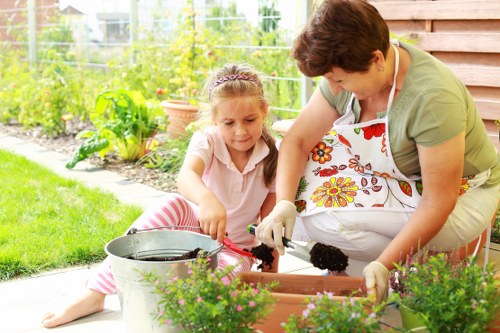
Planning Your Landscape Garden
Assessing Your Space
Before embarking on a landscape gardening project, it's crucial to assess the space you have available. Consider factors such as sunlight exposure, soil quality, drainage, and existing vegetation. Understanding these elements will help you make informed decisions about plant selection and garden layout.
Conduct a site analysis to identify the strengths and limitations of your garden space. Take note of areas that receive full sun, partial shade, or full shade, as different plants have varying sunlight requirements. Additionally, evaluate the soil type and pH levels to ensure optimal plant growth.
Proper planning sets the foundation for a successful landscape garden. Create a sketch or layout of your garden area, marking the positions of trees, shrubs, pathways, and other features. This visual representation will guide your planting and design decisions, ensuring a cohesive and organized landscape.
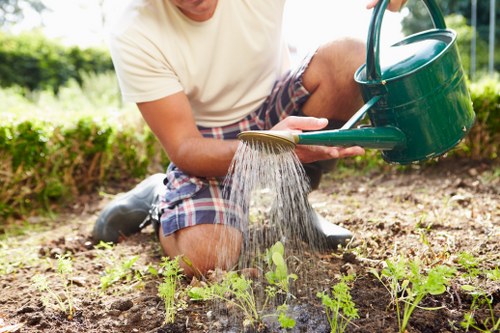
Choosing the Right Plants
Selecting Plants for Your Climate
Selecting the right plants is paramount in landscape gardening. Choose plants that are well-suited to your local climate, soil conditions, and sunlight exposure. Native plants are an excellent choice as they are adapted to the regional environment and require less maintenance.
Consider the hardiness zone of your area when selecting plants. This classification helps you determine which plants can thrive in your specific climate. Additionally, research the moisture and temperature requirements of each plant to ensure they match your garden's conditions.
Diversify your plant selection by incorporating a mix of trees, shrubs, perennials, and annuals. This variety not only adds visual interest but also supports local wildlife, such as pollinators and birds, enhancing the overall ecosystem of your garden.
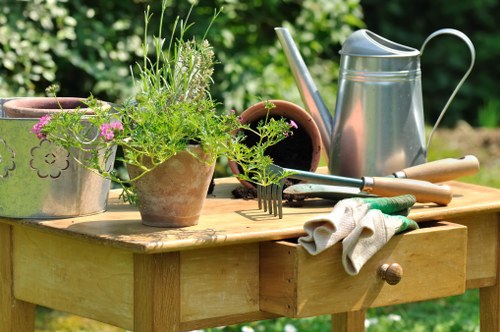
Design Principles in Landscape Gardening
Creating Balance and Harmony
Applying fundamental design principles is essential for creating a balanced and harmonious landscape garden. Consider elements such as symmetry, proportion, and scale to achieve visual balance. Evenly distributing vegetation and structural elements can create a sense of stability and order in your garden.
Incorporate focal points to draw attention and add interest to your landscape. These can include features like a stunning tree, a water feature, a sculpture, or a well-placed bench. Focal points serve as anchors, guiding the eye and enhancing the overall aesthetic appeal of your garden.
Utilize pathways and borders to define different areas within your garden. Curved paths can add a sense of flow and movement, while straight lines offer a more formal and structured appearance. Strategically placed borders help separate plant beds and create a cohesive layout.
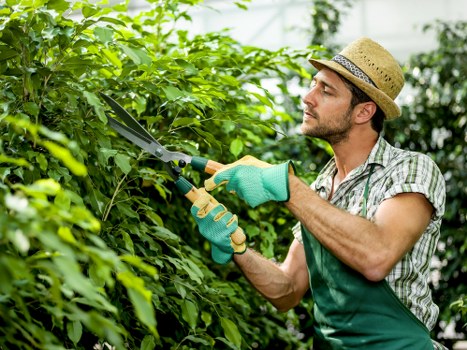
Maintaining Your Landscape Garden
Regular Care and Upkeep
Maintaining a landscape garden requires regular care and attention. Consistent watering, weeding, pruning, and fertilizing are essential to keep your plants healthy and thriving. Developing a maintenance schedule can help you manage these tasks efficiently.
Integrate sustainable practices into your gardening routine to promote environmental stewardship. Use organic fertilizers, implement composting, and practice water conservation techniques to reduce your garden's ecological footprint.
Monitoring plant health and promptly addressing issues like pests and diseases can prevent major problems down the line. Regular inspections and proactive measures ensure that your landscape garden remains vibrant and resilient.
Enhancing Your Landscape Garden with Structures
Incorporating Hardscapes
Incorporating hardscapes—such as patios, decks, fences, and pergolas—can significantly enhance the functionality and aesthetic appeal of your landscape garden. These structures provide defined spaces for relaxation, entertainment, and dining, seamlessly blending with the natural elements of your garden.
Choose materials that complement your garden’s style and color palette. For example, natural stone can add a rustic charm, while sleek metal or wood can contribute to a more modern look. Ensure that the structures are proportionate to the size of your garden to maintain balance.
Strategically placing hardscapes can also improve accessibility and usability. Pathways and walkways guide visitors through different areas of your garden, while focal structures like gazebos or arbors create inviting spaces for gathering and enjoying the outdoors.
The Role of Water Features in Landscape Gardening
Adding Tranquility with Ponds and Fountains
Water features, such as ponds, fountains, and waterfalls, add a sense of tranquility and movement to your landscape garden. The sound of flowing water creates a soothing ambiance, enhancing the overall atmosphere of your outdoor space.
When incorporating water features, consider the size and scale of your garden. Small fountains can serve as subtle accents, while larger ponds or waterfalls can become striking focal points. Ensure that the water feature complements the surrounding plants and structures for a cohesive look.
Maintenance is crucial for water features to prevent issues like algae growth and mosquito breeding. Regular cleaning and proper filtration systems help maintain water quality and keep your features looking pristine.
Seasonal Considerations in Landscape Gardening
Adapting Your Garden Throughout the Year
Successful landscape gardening requires adapting your garden to the changing seasons. Plant selection, maintenance tasks, and design elements should accommodate seasonal variations to ensure year-round beauty and functionality.
In spring, focus on planting new blooms and preparing beds for the growing season. Summer is ideal for maintenance tasks like pruning, weeding, and irrigation. Fall involves preparing plants for winter, such as mulching and planting bulbs for next spring. Winter may require protecting sensitive plants from frost and planning for future garden projects.
Incorporate plants with varying bloom times to ensure continuous color and interest throughout the year. Evergreens and deciduous trees provide structure and greenery even in the colder months, maintaining the garden's aesthetic appeal during winter.
Sustainable Practices in Landscape Gardening
Eco-Friendly Gardening Techniques
Sustainable landscape gardening focuses on creating environmentally friendly and resource-efficient gardens. Implementing eco-friendly techniques not only benefits the planet but also promotes a healthier and more resilient garden ecosystem.
Use compost to enrich soil fertility naturally, reducing the need for chemical fertilizers. Implementing rainwater harvesting systems can conserve water and provide an alternative water source for your plants. Additionally, integrating native plants minimizes water usage and supports local wildlife.
Minimize waste by recycling garden materials and repurposing items for use in your garden. For example, old containers can serve as plant pots, and broken branches can be used for creating garden borders or structures.
Innovative Landscaping Ideas
Incorporating Modern Trends
Staying updated with the latest landscaping trends can inspire fresh and innovative ideas for your garden. Modern landscape gardening emphasizes functionality, sustainability, and aesthetic appeal, blending contemporary design elements with natural beauty.
Consider integrating permaculture principles to create a self-sustaining garden that mimics natural ecosystems. Vertical gardens and green walls are excellent for maximizing space and adding a unique visual element to your landscape.
Lighting plays a crucial role in modern landscape gardening, enhancing the garden’s beauty and usability during evening hours. Use energy-efficient LED lights to highlight pathways, focal points, and structural elements, creating a magical ambiance after dark.
Benefits of Landscape Gardening
Enhancing Well-being and Property Value
Landscape gardening offers numerous benefits, both personal and financial. A well-designed garden provides a serene and relaxing environment, promoting mental and physical well-being. Spending time in a beautiful garden can reduce stress, improve mood, and encourage outdoor activities.
Additionally, a meticulously maintained landscape can significantly enhance your property's curb appeal and value. Prospective buyers are often attracted to homes with attractive and functional outdoor spaces, making landscape gardening a worthwhile investment.
Beyond aesthetics, effective landscape gardening can improve environmental health by reducing erosion, supporting biodiversity, and enhancing air and water quality. These ecological benefits contribute to a more sustainable and resilient community.
Tools and Equipment for Landscape Gardening
Essential Gear for Every Gardener
Having the right tools and equipment is essential for successful landscape gardening. Quality tools make gardening tasks easier and more efficient, allowing you to focus on creating and maintaining your outdoor space.
- Shovel: Ideal for digging, planting, and moving soil.
- Pruning Shears: Essential for trimming and shaping plants.
- Garden Hose: Provides reliable irrigation for your plants.
- Rake: Useful for leveling soil and removing debris.
- Wheelbarrow: Facilitates the transport of materials across your garden.
Invest in high-quality, durable tools that will withstand regular use and last for years. Proper maintenance, such as cleaning and sharpening, extends the lifespan of your gardening tools, ensuring they remain effective and reliable.
Hiring Professional Landscape Gardeners
When to Seek Expert Help
While many aspects of landscape gardening can be managed by individual gardeners, there are times when hiring professional landscape gardeners is beneficial. Experts bring specialized knowledge, experience, and skills that can elevate your garden to the next level.
- Complex Designs: Professionals can help create intricate and cohesive landscape designs that may be challenging to achieve on your own.
- Large-Scale Projects: For expansive gardens or commercial properties, expert landscapers can efficiently manage large-scale installations.
- Problem Solving: Professionals can address issues like poor drainage, soil deficiencies, and pest infestations with effective solutions.
- Maintenance: Regular maintenance by professionals ensures your garden remains healthy and well-maintained throughout the year.
Hiring a professional landscape gardener can save time and ensure high-quality results, making it a worthwhile investment for enhancing your outdoor space.
Conclusion
Start Your Landscape Gardening Journey Today
Landscape gardening in gardener gardening is a rewarding endeavor that combines creativity, sustainability, and practical skills. By understanding the key principles and implementing effective strategies, you can create a beautiful and functional outdoor space that enhances your lifestyle and adds value to your property.
Whether you're planning a small garden or a large landscape project, the insights shared in this article provide a solid foundation for your gardening journey. Embrace the art of landscape gardening and transform your outdoor space into a haven of beauty and tranquility.
Ready to elevate your garden? Contact us today to start your landscape gardening project and bring your vision to life!



